

AI Literature Review Generator
- Academic Research: Create a literature review for your thesis, dissertation, or research paper.
- Professional Research: Conduct a literature review for a project, report, or proposal at work.
- Content Creation: Write a literature review for a blog post, article, or book.
- Personal Research: Conduct a literature review to deepen your understanding of a topic of interest.
New & Trending Tools
Holiday greeting card message generator, santa's letter response generator.
Academic Review Generator
Create professional academic reviews in minutes. Let AI analyze research papers and generate structured, citation-rich reviews.
- Upload File
How Our AI Literature Review Generator Works
Smart research analysis.
Our AI scans through thousands of academic papers to find the most relevant sources for your topic.
Automatic Citation
Generate properly formatted citations and references automatically as your review is created.
Structured Review
Get well-organized literature reviews with clear sections, arguments, and supporting evidence.
Getting Started with LitReview
Enter your topic.
Input your research topic or upload a text file. Add keywords and set your preferences in the advanced settings.
AI Processing
Our AI analyzes academic sources, extracts relevant information, and structures your literature review.
Review & Export
Get your complete literature review with proper citations. Export as PDF or print for your research.
Frequently Asked Questions
How does the ai literature review generator work, what citation formats are supported, how long does it take to generate a review, can i edit the generated review, is the content original and plagiarism-free.
- AI Story Generator
- AI Paragraph Generator
- Paraphrasing Tool
- Essay Title Generator
- AI Research Paper Generator
AI Literature Review Generator
- AI Dissertation Writer
- AI Thesis Generator
Reasons to Use Lumerwriter AI Literature Review Generator
- Reliable Sources Using LumenWriter will help you to stop worrying about finding trustworthy sources for your information. There will be no false information or facts in your lit reviews. While searching for sources for your material, this tool consult reliable academic sites.
- Creative Technology Because of their real authenticity, the patented algorithm guarantees that any generated avoids artificial intelligence detectors. Using this AI bot will help you write content with ease; nobody will be wiser.
- Appropriate Guidance Just a few easy questions will provide the ideal material depending on all your requirements. This will also provide you with wise direction and recommendations to produce your piece of work.
- Fast and Effective Among the most crucial elements influencing content development are speed, volume, and quality. The main objective of such AI system is to generate outstanding material at a very fast pace. And LumenWriter offers it in a short period.
The Mechanisms of AI Lit Review Writer
- Enter a Paper Topic Type or paste the topic of your paper into the designated input field. Once entered, press the button to initiate the literature review generation process.
- Submit Instructions Provide specific details about your requirements, including the citation style and any other guidelines for your paper. The software will use these instructions to tailor the content appropriately.
- Track Your Order Monitor the progress of your literature review by checking the status updates. This lets you know how far along your work is in the creation process.
- Get the Best Results Once the literature review is complete, check the content to ensure it meets your expectations and contains all requested elements. If needed, revise your instructions for further refinement.
What Exactly is Meant By the Term Literature Review?
How does the ai literature review generator on lumenwriter work.
Our AI tool for literature review assignments makes use of relatively new technology. Here’s what you should know about it:
- It Utilizes the Most Advanced Natural Language Processing and Machine Learning Algorithms: This is how it can quickly analyze enormous datasets of academic documents.
- It Can Generate Structured Reviews, Summarize Findings, and Identify All Relevant Themes: Its training allows it to organize and deliver a quality response for students and researchers alike.
- It Is Capable of Devising Outputs Based on the Keywords and Specific Topics You Mention: When users give it instructions, it immediately gets to work scanning all the relevant research. This automates the process of collecting and summarizing information that you would otherwise have to do on your own.
How Does One Use the Literature Review Writer?
Literature review writer AI is actually easier to use than you might imagine. Here’s a step-by-step guide to getting started with this exciting new tool:
- First, you will visit the website, create an account, and sign in. The process shouldn’t take any more than a few seconds.
- Next, you will enter the search parameters. You can do this by coming up with keywords or giving the generator a topic that is of interest to you or one that a professor assigned you.
- The user then waits while the tool starts to create content based on the parameters that you gave it. The bot has access to an extensive library of books, articles, etc.
- In a short while, you will see the results of your request. The algorithm that is infused with these types of generators makes sure the response you get back is well organized and features only accurate information. The review you get will even come with a citation if it directly references any existing piece of academic writing.
Why Would You Use the Literature Review Generator from LumenWriter?
There are many viable reasons for using our AI article review generator. Let’s discuss just a few of them:
- It Reduces the Workload for Researchers: The advanced version of our bot is capable of reducing the amount of work researchers need to put into projects. It can handle summarization and organization tasks in minutes that previously would have taken days.
- It Has Unique Features: None of the similar tools you can find on other sites are as customizable as ours. This tool can tailor reviews to meet specific needs. Our AI writer can also make whatever academic tone adjustments you require and deliver precise summaries of any existing book or article.
- It Saves You Time: You get a generated response in just a few minutes, even if you gave the bot a particularly complicated assignment.
- It Is More Accurate Than Trying to Create a Review on Your Own: The accuracy of our AI is a certainty. On your own, it’s easy to make a mistake.
- It Can Access Vast Amounts of Data Quickly: The review maker also has access to an unprecedented amount of data. This is instrumental in its ability to create insightful texts that are suitable for many different situations.
Who Should Use the Literature Review AI Generator?
Our free AI literature review writer is suitable for use by many different individuals. For instance, you might try it if you’re:
Both individuals new to research and seasoned scholars often need to quickly compile relevant reviews.
Common Use Cases for Our Literature Review Generator AI Tool
Some common use cases for the online generator include:
- Writing Journal Articles: If you’re writing an article for a journal, that might very well include a review of some existing literature on the subject you have selected. The tool can help at different stages of the research process, from early on to when you’re putting the finishing touches on the article.
- Conducting a Systematic Review for a Research Project: If you are conducting reviews of published literature for a research project, that is a perfect scenario for use of this sort of AI. You can expand on what others have written while drawing your own conclusions about the topic in question.
- Writing a Final Paper for a Class: At the undergraduate level, you can be expected to not just write papers, but also to create scholastic reviews of existing ones. Those can be exhausting to create on your own. Luckily, our online literature review generator can help you get through these often dry and time-consuming assignments.
- Reviewing a Book for School: You might also have a scenario where you need to review a particular book or some other piece of writing for school. This can happen at the high school, college, or postgraduate level. The bot will be beneficial then as well. It can deliver an insightful paper based on the data that it has about that particular text.
- Writing a Literary Review for a Blog: Some individuals run blogs as a way of getting more visitors on their websites. If this is something you’re interested in, you might create and post literary reviews on the topic that you feel will interest your site visitors. You may not have the time to compose those reviews on your own, though. It is another situation where you should find our bespoke technology to be useful.
A lit review generator is also the ideal tool for use in several disciplines embraced by academia. Those include engineering, biology, social sciences, philosophy, and many more.
Is the Literature Review AI Writer from LumenWriter Free to Use?
What is the method through which i can write a literature review, how much time does lit review ai take to create a deliverable for you, how do i do a literature review, will anyone in the academic world be able to tell that i used this kind of ai.

Please contact us by email:
to book a demo session of Laser AI.
The next generation tool for systematic reviews
Built from the ground up to support living systematic reviews, Laser AI provides a unique blend of innovation in methods and technology
About Laser AI
Accelerate your research with AI-supported Living Systematic Reviews. Streamline screening and data extraction while maintaining control at every stage.
Seamless Screening
Dive into title & abstract screening and full-text screening with efficiency. Laser AI's innovative user interface highlights what matters and streamlines the screening process, giving your research team more time
AI-Assisted Data Extraction
Harmonise data extraction and reduce double work with custom templates that suit your needs. Quality assurance and data cleaning modules make your review audit-ready and transparent with a detailed project history.
Organize and reuse
Improve consistency and collaboration with shared project templates and data extraction forms . Work with your team in real-time from anywhere and reuse data across projects with the help of controlled vocabularies .
Publications
Cochrane colloquium sep 2023, german medical science, keep up to date:.
May 23, 2024
HTA in Evidence-Based Decision Making
Health Technology Assessments (HTAs) help guide evidence-based healthcare decisions. From traditional methods to new approaches, explore how HTAs impact policy, practice, and innovation in an evolving healthcare landscape.

May 8, 2024
ISPOR Atlanta 2024
Read some of Evidence Prime's thoughts about the ISPOR Atlanta conference in 2024. We were grateful to have attended and thrilled to be part of such a prestigious event.

April 9, 2024
HTAs: Innovations and Trends in Evidence Synthesis
Health Technology Assessments (HTAs) are evolving as the need for better decision-making tools rise. Different innovations and trends are enhancing the decision-making processes. Staying informed and contribute to the future of healthcare.

March 12, 2024
Ethical Implications of AI in Healthcare
Bias, accountability, privacy - explore ethical implications of AI in healthcare and how AI should be fair and secure.

AI in Evidence Synthesis
Delve into the topic of AI in evidence synthesis with Laser AI and Nested Knowledge. With outside industry professionals, you'll learn valuable industry insights and how AI is being used.

February 20, 2024
February 8, 2024
Types of AI in Healthcare
Explore the types of AI in evidence-based healthcare and learn how it is promising better patient outcomes and a brighter future overall.

Conducting A Systematic Review with Laser AI
Whether you're a current user or exploring Laser AI, learn how the tool can improve your systematic review workflow by watching our webinar and/or reading the Q&A from the event.

January 30, 2024
November 12, 2023
ISPOR Europe 2023
Evidence Prime is excited to attend ISPOR Europe 2023! Join us at #ISPOREurope as we showcase GRADEpro & Laser AI, offering HEOR professionals efficient literature reviews and guideline development.

Let's Connect
Join our monthly webinars for insightful discussions or product presentations.
Explore the topic of AI in evidence synthesis through our blog posts .
.png)
Dive into conversations about AI and the future of AI in healthcare on LinkedIn!
Would you like to try Laser AI in your organization?
Top 10 Best AI Tools for Literature Review (Free + Paid)
Ayush Chaturvedi
16 min read
Best AI Tools for Literature Review at a Glance
Elephas pricing , elephas reviews, research rabbit key features:, research rabbit pricing , research rabbit , semantic scholar key features:, semantic scholar pricing , semantic scholar reviews , r discovery key features , r discovery pricing , r discovery reviews , mendeley key features:, mendeley pricing , mendeley reviews , scholarcy key features:, scholarcy pricing , scholarcy reviews , rayyan key features:, rayaan pricing , rayaan reviews , consensus key features:, consensus pricing , consensus reviews , unpaywall key features:, unpaywall pricing , unpaywall reviews , lateral key features:, lateral pricing , lateral reviews, what is a literature ai tool , benefits of using ai tools for literature review , how did we pick the best ai tools for literature review, conclusion , 1. what is the best ai tool for literature review, 2. are ai tools for literature review suitable for all types of research , 3. are there any limitations to using ai tools for literature review.
AI tools are revolutionizing the literature review process, offering researchers a powerful alternative to manual searches. These tools can rapidly analyze vast amounts of data, identifying relevant studies and key information with precision and efficiency.
By streamlining the research process, AI-powered literature review tools save time and reduce frustration, allowing researchers to focus on analysis and interpretation.
This article examines the top AI tools for literature review, evaluating both free and paid options.
We'll explore how these tools can enhance your research workflow and help you conduct more comprehensive literature reviews.
So let's get started.
Elephas: Best for comprehensive AI-powered literature reviews and writing.
Research Rabbit: Best for organizing and discovering academic papers.
Semantic Scholar: Best for personalised, context-aware academic searches.
R Discovery: Best for personalized research feeds and multilingual access.
Mendeley: Best for reference management and collaborative research.
Scholarcy: Best for generating concise academic summaries.
Rayyan: Best for systematic literature reviews with collaboration.
Consensus: Best for finding evidence-based answers quickly.
Unpaywall: Best for accessing open-access scholarly articles.
Lateral: Best for organizing and analyzing research documents
Top 10 Best AI Tools for Literature Review
1. Elephas

Elephas is the best AI tool for literature review, designed to revolutionize your writing and research experience. With its robust suite of features, Elephas ensures that every aspect of your writing process is covered. From its offline capabilities, which keep your data secure, to the ability to integrate multiple AI models like OpenAI, Claude, and Gemini, Elephas offers unparalleled versatility.
The Super Brain feature takes it a step further by indexing YouTube videos and web pages, allowing you to store and access valuable research material easily. Whether you need to generate content, fix grammar, or create engaging replies, Elephas has the tools to enhance your productivity and creativity.
Key Features:
Multiple AI Providers: Experiment with various writing styles and voices from OpenAI, Claude, Gemini, and Groq.
Offline Functionality: Write with confidence using local LLms that ensure your data is never shared or used for external training.
Web Search: Seamlessly search the web and incorporate relevant information into your writing.
Super Brain: Index YouTube videos and web pages, store them for future use, and retrieve content easily for in-depth research.
Rewrite Modes: Choose from Zinsser, Friendly, Professional, and Viral modes to tailor your writing style to any need.
Smart Write: Generate high-quality content quickly with just a few prompts or keywords.
Continue Writing: Overcome writer's block by letting Elephas continue your text based on the context you provide.
Personalized Tones: Train Elephas to match your unique writing voice and style for a more personalized touch.
Many users have shared how Elephas has transformed their daily workflow, making it an essential tool they can’t live without. One user mentioned that Elephas is incredibly addictive, boosting productivity by 10x and ensuring their emails always look great.
Another long-time user praised the app for lasting through the years and highlighted the "brains" feature, which speeds up content creation, programming, and editing.
With Elephas, users experience unmatched efficiency and quality, making it the best tool for anyone looking to enhance their productivity and content creation.

2. Research Rabbit

Research Rabbit is a versatile AI-powered tool designed to streamline the process of finding, managing, and analyzing research papers. As one of the best AI tools for literature review, it offers a user-friendly platform for anyone to access academic publications.
After registering, users can search for research articles by author, topic, or keyword, and organize their findings in a personalized library. This tool is dedicated to enhancing scholarly work by supporting every stage of research, from discovery to collaboration.
AI-driven search engine: It has AI search engines that can find and index relevant academic papers from across the web.
Customizable collections: It has already built in collections for organizing and managing research articles in a way that suits your specific needs and preferences.
User-friendly interface: It is designed for seamless navigation and an intuitive research management experience.
Broad search criteria: It includes detailed filters for author, topic, and keyword to refine your research findings.
Free access: It has all features for free, providing a cost-effective solution for research management.
Free to use
We could not find any public reviews on the tool, so we advise users to be cautious while using the tool.
3. Semantic Scholar

Semantic Scholar is an advanced AI tool designed to enhance your literature review process by providing in-depth, context-aware search results. Ideal for researchers across various disciplines, it simplifies the search for academic papers, helping users navigate through over 200 million publications efficiently.
By understanding the content and context of scientific articles, Semantic Scholar delivers personalized search outcomes, making it an invaluable resource for accelerating your research efforts. As one of the Best AI Tools for Literature Review, it stands out for its ability to filter and present the most relevant literature based on your specific needs.
Speeds up literature searches: Delivers context-rich results that save time and streamline the research process.
Customized search outcomes: Provides personalized results by deeply understanding the content and context of academic articles.
Versatile academic support: Accommodates a wide range of disciplines, enhancing its utility across different research areas.
Extensive database access: Offers a comprehensive database of over 200 million papers, ensuring broad coverage of research topics.
Enhanced research efficiency: Utilizes advanced AI to drive personalized search capabilities, improving overall research productivity.
4. R Discovery

R Discovery is a powerful tool designed to enhance the research discovery process for students and researchers. With access to over 250 million research papers, it provides personalized reading feeds customized to your specific interests, ensuring you stay updated with the latest research in your field.
The platform allows you to create and manage multiple reading lists, offers multilingual and full-text audio features for enhanced accessibility, and sends smart research alerts to keep your research organized.
Personalized Research Feeds: R Discovery curates a customized reading list based on your interests, ensuring you stay up-to-date with the latest research.
Multiple Reading Lists: Organize your research with separate reading lists for different projects.
Multilingual & Full-Text Audio: Access research in over 30 languages, including audio versions for enhanced comprehension.
Smart Research Alerts: Receive targeted notifications about relevant research without being overwhelmed.
Integration with Reference Managers: Seamlessly sync your library with tools other research tools.
Paid Plan stats from 2.29$/month
5. Mendeley

Mendeley is a versatile reference management software, ideal for researchers, academics, and students involved in literature reviews. As one of the best AI tools for literature review, it helps users organize and manage their references efficiently, making research more streamlined. Mendeley also enables users to annotate PDFs, collaborate with others, and discover relevant literature, ensuring a comprehensive research experience.
Reference Management: Easily organize, store, and search through all your references from a single, centralized library, simplifying literature management.
PDF Viewing and Annotation: Open PDFs directly within Mendeley’s viewer, where you can add highlights and detailed notes, all stored for easy access.
Collaboration: Share references and annotated documents with research teams by creating private groups, enhancing collaboration and teamwork.
Literature Discovery: Import references from external sources and use Mendeley’s network to find and share key research papers with ease.
Citation Generation: Effortlessly generate accurate citations and bibliographies in multiple styles using the Mendeley Cite add-in for Microsoft Word.
Paid Plan starts from $4.99/month
Several users have expressed disappointment with Mendeley, noting that it has become increasingly frustrating to use. One user mentioned that the tool has too many flaws, requiring constant log-ins and failing to save passwords, making it unbearable.
Another user shared that Mendeley is now a pain to use, with issues like the Word plug-in needing constant reinstallation, corrupted passwords, and disappearing or duplicated references.

6. Scholarcy

Scholarcy is a powerful AI-driven tool that simplifies the literature review process by generating concise summaries from academic papers. Designed to assist researchers, students, and academics, it quickly extracts key information, making it easier to evaluate and understand complex research. Scholarcy stands out as one of the Best AI Tools for Literature Review, ensuring efficient management of vast academic content.
Flashcard Summaries: Quickly grasp the main points of research papers with interactive flashcards that provide a concise, easy-to-read overview of the content.
Smart Highlighting: Easily identify factual statements and research findings with color-coded highlights that guide you to the most critical sections of the text.
Full-Text Access: Directly access full-text articles and cited papers through convenient links, streamlining your literature review process.
Literature Discovery: Efficiently discover and screen relevant literature with detailed synopses and highlights, helping you absorb key points in minutes.
Reference Management Integration: Seamlessly export flashcard summaries and key highlights to reference management tools like Zotero for organized and efficient citation management.
A user expressed dissatisfaction with Scholarcy, describing it as offering "no value added." The review highlighted concerns that Scholarcy essentially copies and pastes sections of articles or chapters and misleadingly labels it as "AI summarizing."
The user also noted that the quality of the service dropped significantly after their free subscription expired, and they experienced issues with the interface being glitchy. The review strongly advises against paying for this service.

Rayyan is a powerful AI-driven app designed to streamline the systematic literature review process. It helps researchers quickly sift through vast amounts of research by enabling efficient reference management, de-duplication, screening, and organization.
With Rayyan, users can import references from diverse sources, apply inclusion and exclusion criteria, assign labels, and export data for detailed analysis. The tool also supports collaboration among remote teams, making it an excellent choice for students, librarians, and researchers globally.
Collaborative Reviews: Seamlessly collaborate with distributed teams from anywhere using Rayyan’s intuitive mobile app.
Efficient Reference Management: Quickly import, de-duplicate, and organize your research references to save time and reduce errors.
Customizable Criteria: Easily apply and adjust inclusion and exclusion criteria to fit your specific review needs.
Advanced Analytics: Export your data for in-depth analysis and generate comprehensive reports to support your findings.
Priority Support: Benefit from dedicated training and VIP support to enhance your productivity and overcome challenges efficiently.
Paid Plan starts from $8.33/month
8. Consensus

Consensus AI is a cutting-edge search engine designed to help you quickly find evidence-based answers from scientific research. It uses artificial intelligence to extract and summarize findings from peer-reviewed studies , providing a fast and efficient way to access reliable information.
Consensus allows users to refine their searches, explore various research topics, and save time by delivering concise answers and full-text access to relevant papers. For academic research, Consensus AI is among the Best AI Tools for Literature Review due to its ability to synthesize and present information clearly and accurately.
AI-Powered Insights: Extracts and synthesizes findings from over 200 million scholarly documents.
Advanced Search Capabilities: Answers direct questions and explores relationships between concepts.
Consensus Meter: Provides a summary of agreement levels among multiple studies.
ChatGPT Integration: Access scientific research directly within the ChatGPT interface.
Customizable Searches: Offers tools to refine searches and explore more options based on research needs.
Paid Plan starts from $8.99/month
We couldn’t find any trustworthy reviews available on the internet for the Consensus. We advise users to use the tool with caution.
9. Unpaywall

Unpaywall is a free tool that aims to make scholarly research more accessible by providing open access to a vast collection of academic articles. It is integrated with major databases like Scopus and Web of Science, searching over 50,000 publishers and repositories globally.
Users can find free, full-text versions of articles using Digital Object Identifiers (DOIs), making Unpaywall a vital resource for researchers seeking literature without barriers. This makes it one of the Best AI Tools for Literature Review.
Simple Query Tool: Allows users to quickly determine if an open access version of a specific list of articles, identified by DOIs, is available in the Unpaywall database.
Browser Extension: Automatically searches for and highlights legally available, free versions of scholarly articles as you browse , providing instant access to full texts.
Extensive Database: Offers access to a comprehensive index of over 20 million free, legal full-text PDFs, ensuring that users can find a wide range of open access literature.
Global Integration: Seamlessly integrates with major academic databases like Dimensions, Scopus, and Web of Science, enhancing the reach and effectiveness of your literature search.
API Access: Provides flexible data retrieval options, including REST API, R API Wrapper, or full dataset download, catering to various research and data management needs.
10. Lateral

Lateral is one of the Best AI Tools for Literature Review, designed to enhance your academic research process. This AI-powered app helps streamline your workflow by organizing, searching, and saving information from various research papers.
With Lateral, you can efficiently analyze key concepts, relationships, and trends across your documents. The tool supports literature reviews by enabling you to manage sources and citations effortlessly, making research and paper writing much faster and easier.
Auto-Generated Table: Keeps an organized overview of all your research findings and references.
AI-Powered Concepts: Suggests relevant text across all your papers based on named concepts.
Super Search: Allows searching across all papers at once with highlighted similar results.
Smart PDF Reader: Facilitates reading and highlighting directly in the browser for better connection discovery.
Powerful OCR: Converts text from scanned PDFs into searchable and highlightable formats.
Paid Plans starts at $11.02/month

Literature AI tools are designed to significantly speed up the process of conducting literature research, helping researchers, students, and professionals save valuable time. These tools use advanced algorithms to automate various tasks, making literature research more efficient. Here’s an overview of the different types of literature AI tools available:
Literature Summary Tools: Quickly condense lengthy texts into concise summaries, making it easier to grasp key points.
Literature Research Tools: Assist in finding and organizing relevant research papers and articles.
Literature Review Tools: Provide detailed analyses and critiques of existing literature to support comprehensive reviews.
Writing Assistance Tools: Aid in drafting and editing texts, improving writing quality and coherence.
However, there are some tools such as Elephas which have all the features combined and it is perfect for researchers. It can summarize, review, write, assist, and many.

Using AI tools for literature review brings significant advantages, making the entire process smoother and more effective. These tools are particularly valuable for researchers, students, and anyone engaged in extensive literature work.
Here are some key benefits of these tools:
Time Efficiency: AI tools cut down the time needed to gather and summarize information. This can make research tasks much faster, almost halving the time you spend on literature review.
Accuracy: With AI handling data analysis, you can trust that the summaries and insights are precise, reducing the likelihood of mistakes.
Better Organization: AI tools help keep research materials neatly organized. This makes it easier to track and retrieve relevant information when needed.
Deep Insights: These tools dive deep into texts, offering detailed analysis and extracting essential points that might be missed otherwise.
Boosted Productivity: By automating repetitive tasks, AI tools let you focus on more critical parts of your work, increasing overall productivity.

To select the best AI tools for literature review, we carefully evaluated several key factors to ensure that each tool provides significant value to researchers, students, and academics. Here’s how we picked the top tools:
Functionality: We looked at the core features each tool offers, such as summarization, reference management, and advanced search capabilities. Tools that provide comprehensive and unique features stood out.
User Experience: The ease of use and intuitive interface were essential. We favored tools that are user-friendly and require minimal training, making them accessible for everyone.
Pricing: We assessed the cost-effectiveness of each tool, considering both free and paid options. Tools that offer a good balance between features and affordability were given priority.
Performance and Accuracy: We tested how well each tool performs its tasks, such as summarizing research papers or managing references. Tools that deliver accurate and reliable results were preferred.
Customer Reviews: User feedback and reviews helped us gauge the real-world effectiveness of each tool. We considered both positive and critical reviews to ensure a well-rounded selection.
By focusing on these criteria, we identified the best AI tools for literature review that provide robust features, ease of use, and excellent value, making them ideal choices for anyone involved in academic research.
To wrap things up, the right AI tool can make a huge difference in your literature review process, turning hours of work into a streamlined, efficient task. Each tool on the list has its strengths—like Research Rabbit’s intuitive organization or Semantic Scholar’s smart search options. However, Elephas really shines when it comes to an all-in-one solution.
With its blend of multiple AI models, offline support, and features like Super Brain indexing, Elephas isn't just another tool—it's a game-changer for anyone serious about research.
It simplifies complex tasks and adapts to your workflow, making it an indispensable part of your toolkit. If you want to elevate your literature review experience and work smarter, Elephas is the choice to make.
However, test out each tool according to your requirements and choose the one that fits best to your needs. All the best AI tools for literature are the best; you need to choose the one that can exactly fit your research requirements.
Elephas is the best AI tool for literature review, offering a comprehensive suite of features including offline capabilities, multiple AI models, and advanced indexing options like Super Brain for YouTube and web pages.
AI tools for literature review are versatile and can be adapted to various research fields. However, their effectiveness may vary depending on the complexity of the research topic and the specific needs of the researcher. Research and choose the tool that aligns with your research objectives.
Some limitations of AI tools for literature review include potential biases in AI algorithms, the need for human oversight to ensure accuracy, and the possibility of missing nuanced information that requires expert interpretation. It’s important to use AI tools as a supplement to, rather than a replacement for, thorough research
AI assistant
Sign up now
Get a deep dive into the most important AI story of the week. Deliverd to your inbox for free!
Meet Elephas - Your AI-Powered Knowledge Assistant. Your Personal ChatGPT for all your files. Transform information overload into actionable insights. Organize vast knowledge. Access ideas efortlessly. Save 10 hours a week
You may also want to read

The ChatGPT Name Game: Why Won't AI Say "David Mayer"?
Pinned Post
Interview with Elephas Founder Kamban S | Safety Detectives

Top 10 Best AI Tools for Coaches (Free + Paid) in 2025
Personal Knowledge Management
Previous Post

Distiller SR: Literature Review Software
Smarter reviews: trusted evidence.
Securely automate every stage of your literature review to produce evidence-based research faster, more accurately, and more
transparently at scale.
Software Built for Every Stage of a Literature Review
DistillerSR automates the management of literature collection, screening, and assessment using AI and intelligent workflows. From a systematic literature review to a rapid review to a living review, DistillerSR makes any project simpler to manage and configure to produce transparent, audit-ready, and compliant results.
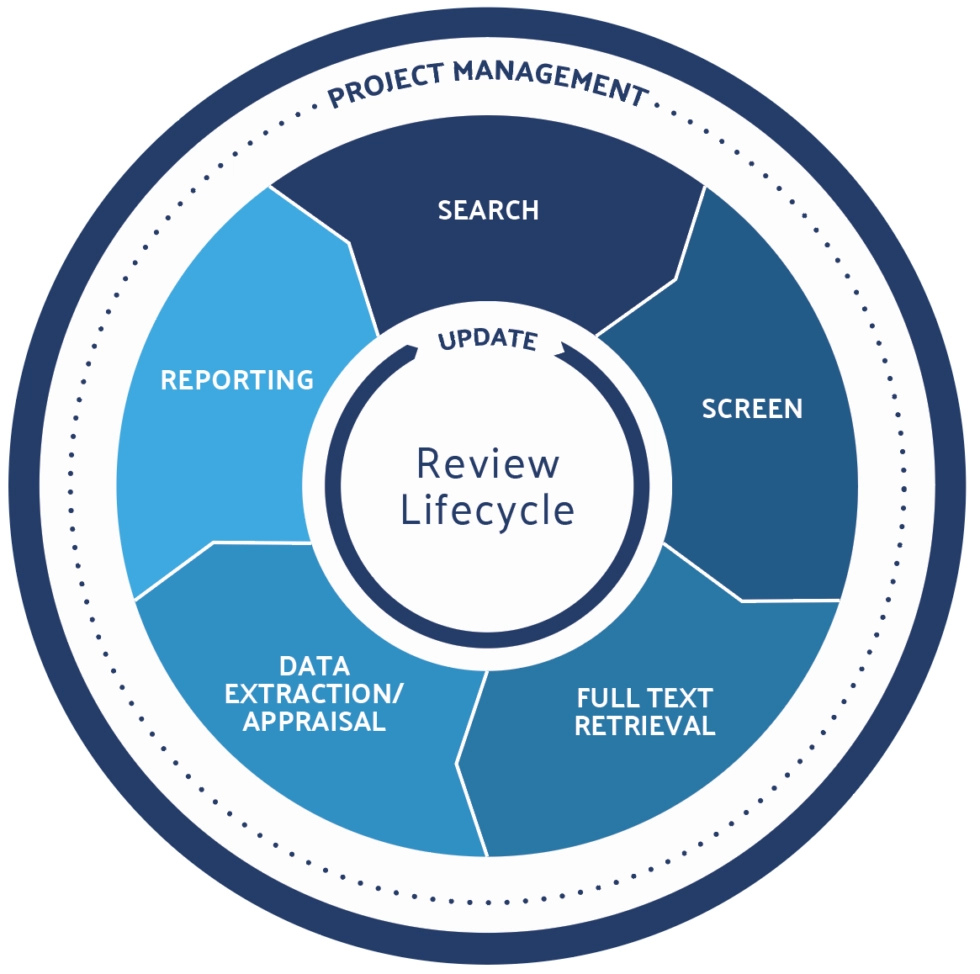
Broader, Automated Literature Searches
Search more efficiently with DistillerSR’s integrations with data providers, such as PubMed, automatic review updates, and AI-powered duplicate detection and removal.
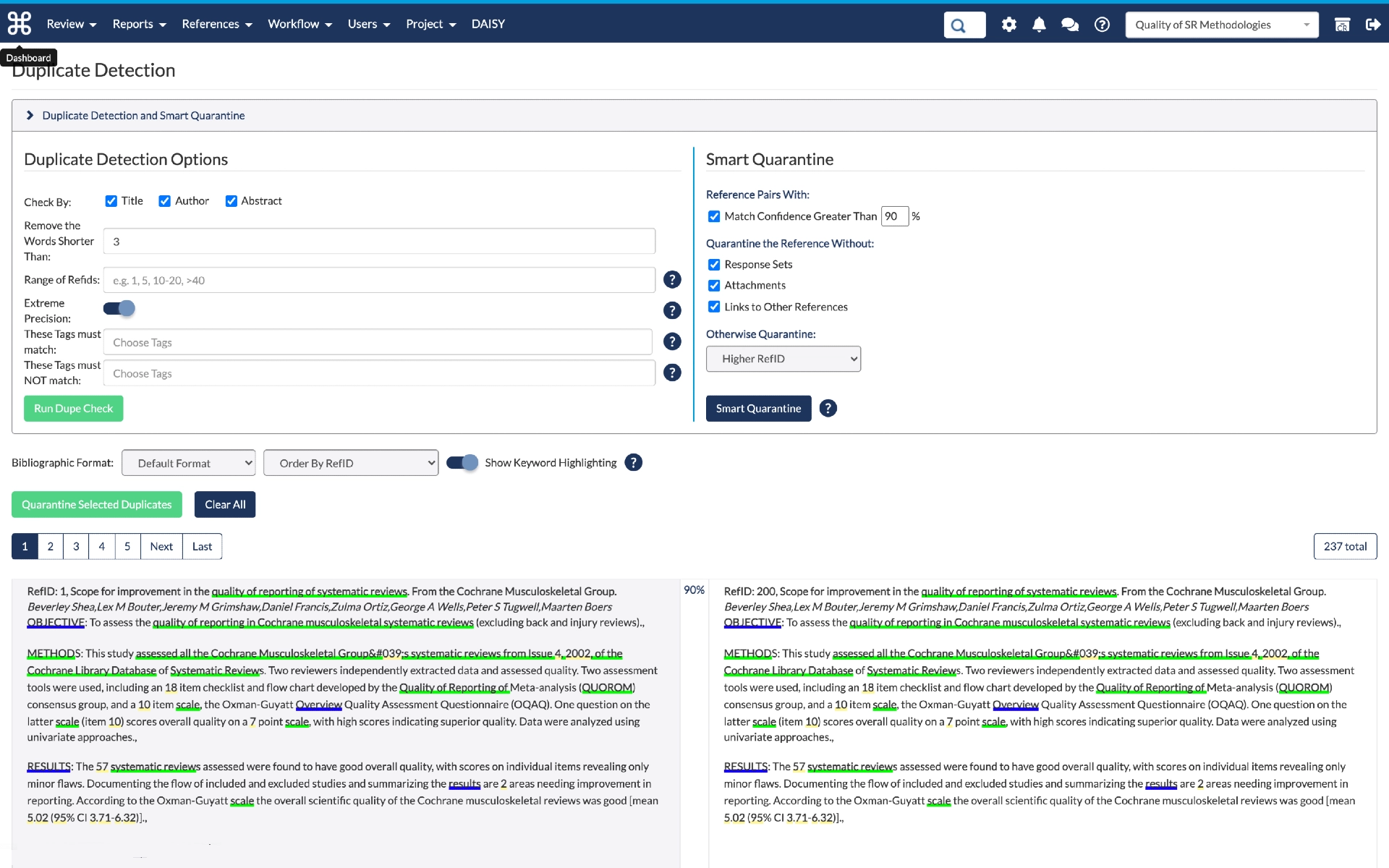
PubMed Integration
Automatic review updates.
Automatically import newly published references, always keeping literature reviews up-to-date with DistillerSR LitConnect .
Duplicate Detection
Detect and remove duplicate citations preventing skew and bias caused by studies included more than once.
Faster, More Effective Reference Screening
Reduce your screening burden by 60% with DistillerSR. Start working on later stages of your review sooner by finding relevant references faster and addressing conflicts more easily.

AI-Powered Screening
Conflict resolution.
Automatically identifies conflicts and disagreements between literature reviewers for easy resolution.

AI Quality Check
Increase the thoroughness of your literature review by having AI double-check your exclusion decisions and validate your categorization of records with the help of DistillerSR AI Classifiers software module.
Cost-Effective Access to Full-Text Documents
Ensure your literature review is always up-to-date with DistillerSR’s direct connections to full-text data sources, all the while lowering overall subscription costs.
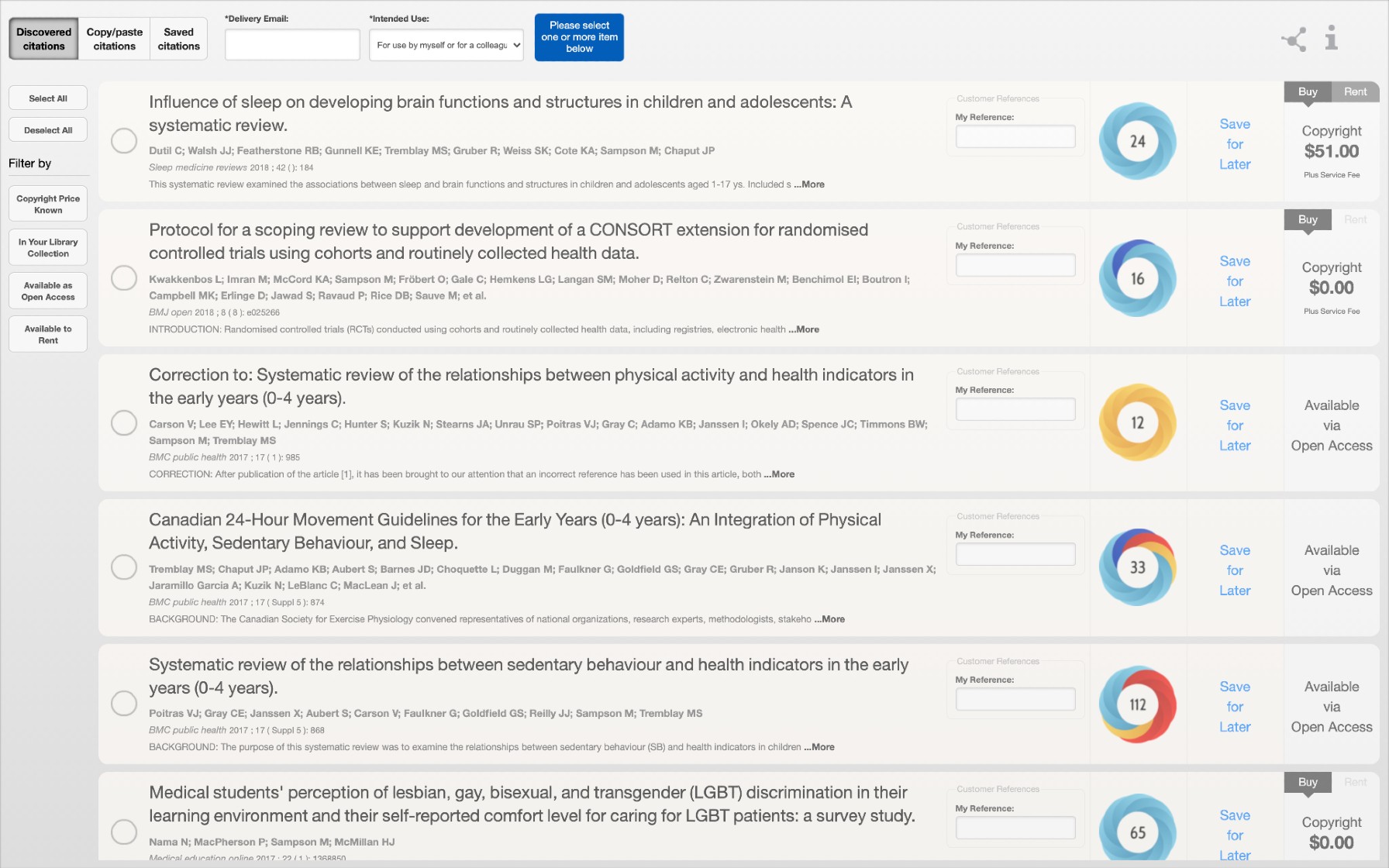
Ensure your review is always up-to-date with DistillerSR’s direct connections to full-text data sources, all the while lowering overall subscription costs.
Open Access Integrations
Automatically search for and upload full-text documents from PMC , and link directly to source material through DOI.org .
Copyright Compliant Bulk Search
Retrieve full-text articles for the lowest possible cost through Article Galaxy .
Ad-Hoc Document Retrieval
Leverage existing RightFind and Article Galaxy subscriptions, the open access Unpaywall plugin, and internal libraries to access copyright compliant documents.
Simple Yet Powerful Data-Extraction
Simplify data extraction through templates and configurable forms. Extract data easily with in-form validations and calculations, and easily capture repeating, complex data sets.
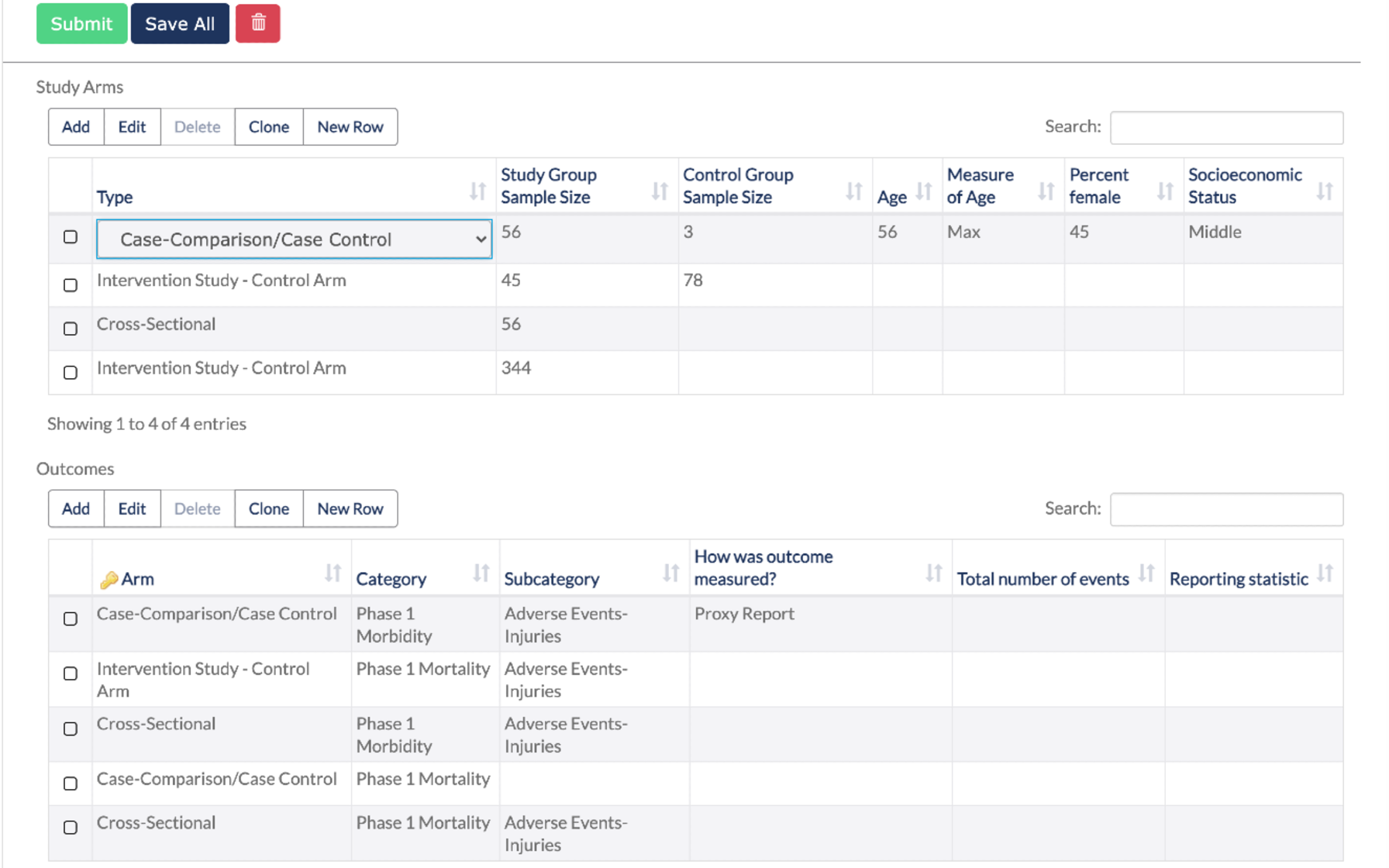
Cross-Review, Data Reuse
Prevent duplication of effort across your organization and reduce data extraction times with DistillerSR CuratorCR by easily reusing data across literature reviews.
Capturing Complex Output
Easily capture complex data, such as a variable number of time points across multiple studies in an easy-to-understand and ready-to-analyze way.
Smart Forms
Cut down on literature review data cleaning, data conversions, and effective measure calculations with input validation and built-in form calculations.
Automatic and Configurable Reporting
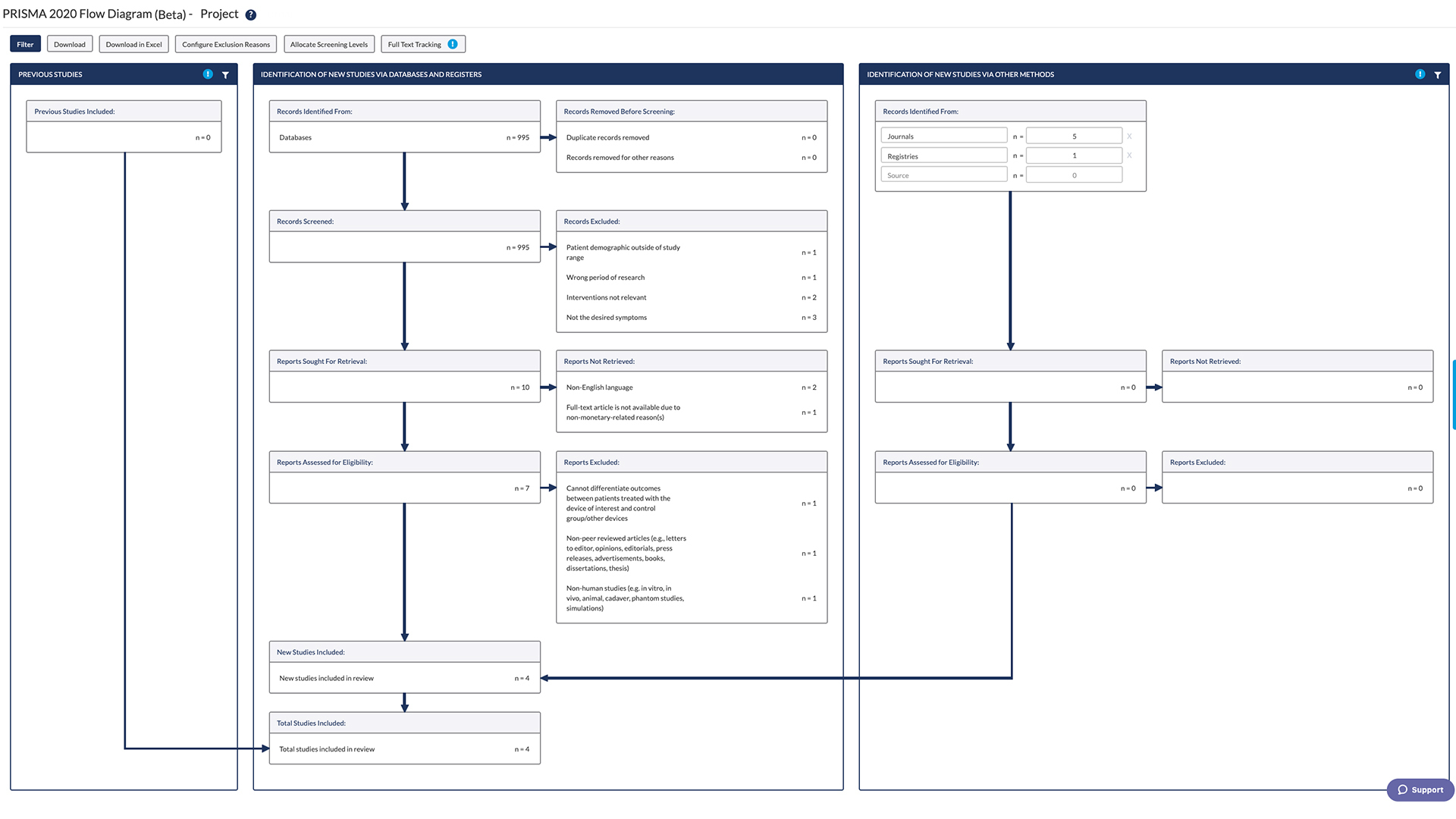
Customizable Reporting Engine
Build reports and schedule automated email updates to stakeholders. Integrate your data with third-party reporting applications and databases with DistillerSR API .
Auto-Generated Reports
Comprehensive audit-trail.
Automatically keeps track of every entry and decision providing transparency and reproducibility in your literature review.
Easy-to-use Literature Review Project Management
Facilitate project management throughout the literature review process with real-time user and project metric monitoring, reusable configurations, and granular user permissions.
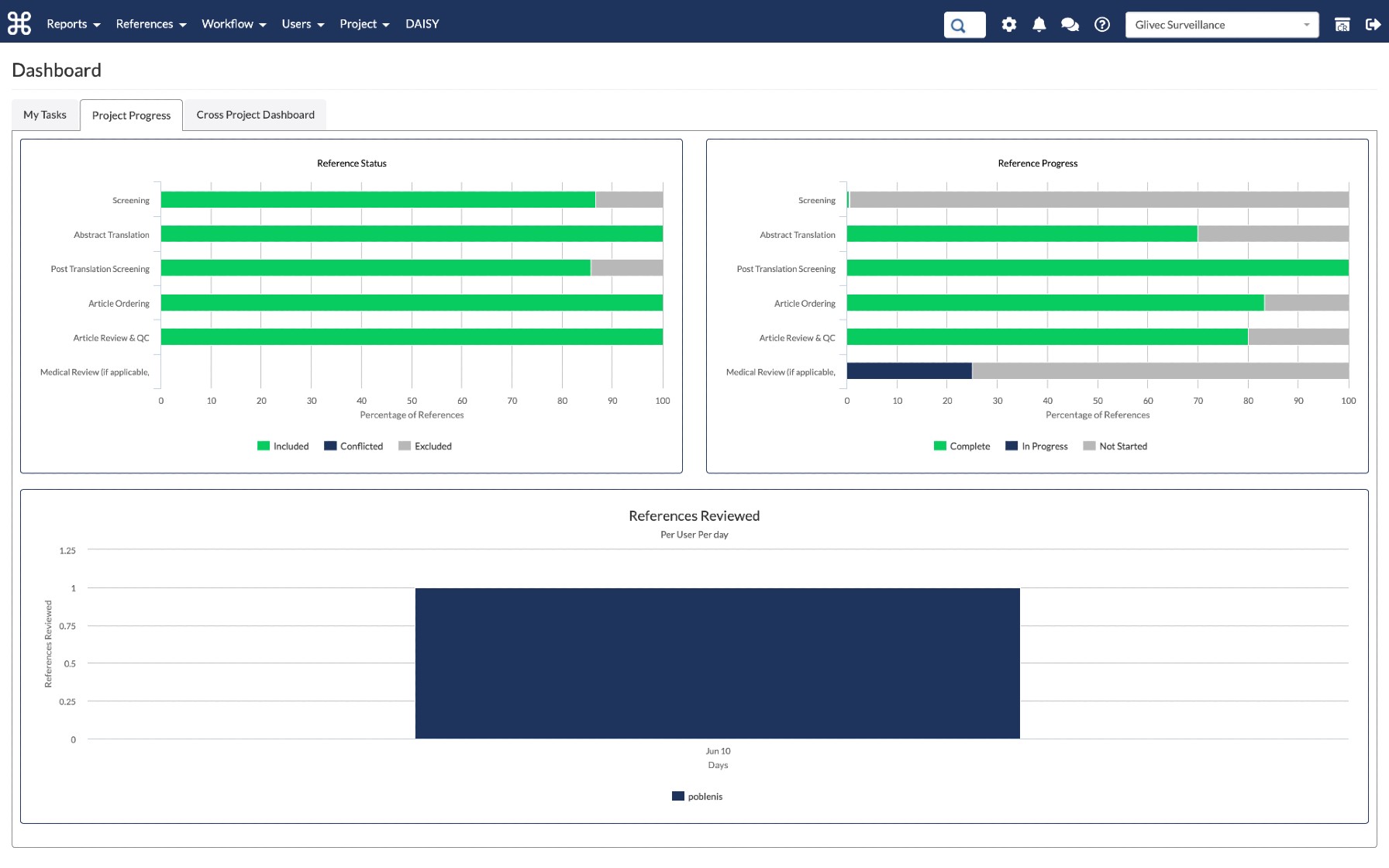
Facilitate project management throughout the review process with real-time user and project metric monitoring, reusable configurations, and granular user permissions.
Real-Time User and Project Metrics
Monitor teams and literature review progress in real-time, improving management and quality oversight into projects.
Repeatable, Configurable Processes
Secure literature reviews.
Single sign-on (SSO) and fully configurable user roles and permissions simplify the literature reviewer experience while also ensuring data integrity and security .
I can’t think of a way to do reviews faster than with DistillerSR. Being able to monitor progress and collaborate with team members, no matter where they are located makes my life a lot easier.
DistillerSR Case Studies

Boston Scientific

Maple Health Group
Distillersr frequently asked questions, what types of reviews can be done with distillersr systematic reviews, living reviews, rapid reviews, or clinical evaluation report (cer) literature reviews.
Literature reviews can be a very simple or highly complex process, and literature reviews can use a variety of methods for finding, assessing, and presenting evidence. We describe DistillerSR as a literature review software because it supports all types of reviews , from systematic reviews to rapid reviews, and from living reviews to CER literature reviews.
DistillerSR software is used by over 300 customers in many different industries to support their evidence generation initiatives, from guideline development to HEOR analysis to CERs to post-market surveillance (PMS) and pharmacovigilance.
What are some of DistillerSR’s capabilities that support conducting systematic reviews?
Systematic reviews are the gold standard of literature reviews that aim to identify and screen all evidence relating to a specific research question. DistillerSR facilitates systematic reviews through a configurable, transparent, reproducible process that makes it easy to view the provenance of every cell of data.
DistillerSR was originally designed to support systematic reviews. The software handles dual reviewer screening, conflict resolution, capturing exclusion reasons while you work, risk of bias assessments, duplicate detection, multiple database searches, and reporting templates such as PRISMA . DistillerSR can readily scale for systematic reviews of all sizes, supporting more than 700,000 references per project through a robust enterprise-grade technical architecture . Using software like DistillerSR makes conducting systematic reviews easier to manage and configure to produce transparent evidence-based research faster and more accurately.
How does DistillerSR support clinical evaluation reports (CERs) and performance evaluation reports (PERs) program management?
The new European Union Medical Device Regulation (EU-MDR) and In-Vitro Device Regulation (EU-IVDR) require medical device manufacturers to increase the frequency, traceability, and overall documentation for CERs in the MDR program or PERs in the IVDR counterpart. Literature review software is an ideal tool to help you comply with these regulations.
DistillerSR automates literature reviews to enable a more transparent, repeatable, and auditable process , enabling manufacturers to create and implement a standard framework for literature reviews. This framework for conducting literature reviews can then be incorporated into all CER and PER program management plans consistently across every product, division, and research group.
How can DistillerSR help rapid reviews?
DistillerSR AI is ideal to speed up the rapid review process without compromising on quality. The AI-powered screening enables you to find references faster by continuously reordering relevant references, resulting in accelerated screening. The AI can also double-check your exclusion decisions to ensure relevant references are not left out of the rapid review.
DistillerSR title screening functionality enables you to quickly perform title screening on large numbers of references.
Does DistillerSR support living reviews?
The short answer is yes. DistillerSR has multiple capabilities that automate living systematic reviews , such as automatically importing newly published references into your projects and notifying reviewers that there’s screening to do. You can also put reports on an automated schedule so you’re never caught off guard when important new data is collected. These capabilities help ensure the latest research is included in your living systematic review and that your review is up-to-date.
How can DistillerSR help ensure the accuracy of Literature and Systematic reviews?
The quality of systematic reviews is foundational to evidence-based research. However, quality may be compromised because systematic reviews – by their very nature – are often tedious and repetitive, and prone to human error. Tracking all review activity in systematic review software, like DistillerSR, and making it easy to trace the provenance of every cell of data, delivers total transparency and auditability into the systematic review process. DistillerSR enables reviewers to work on the same project simultaneously without the risk of duplicating work or overwriting each other’s results. Configurable workflow filters ensure that the right references are automatically assigned to the right reviewers, and DistillerSR’s cross-project dashboard allows reviewers to monitor to-do lists for all projects from one place.
Why should I add DistillerSR to my Literature and Systematic Review Toolbox and retire my current spreadsheet solution?
It’s estimated that 90% of spreadsheets contain formula errors and approximately 50% have material defects. These errors, coupled with the time and resources necessary to fix them, adversely impact the management of the systematic review process. DistillerSR software was specifically designed to address the challenges faced by systematic review authors, namely the ever-increasing volume of research to screen and extract, review bottlenecks, and regulatory requirements for auditability and transparency, as well as a tool for managing a remote global workforce. Efficiency, consistency, better collaboration, and quality control are just a few of the benefits you’ll get when you choose DistillerSR’s systematic review process over a manual spreadsheet tool for your reviews.
What is the role of AI in your systematic review process?
DistillerSR AI enables the automation of the logistic-heavy tasks involved in conducting a systematic literature review, such as finding references faster using AI to continuously reorder references based on relevance. Continuous AI Reprioritization uses machine learning to learn from the references you are including and excluding and automatically reorder the ones you have left to screen, putting the most pertinent references in front of you first. This means that you find included references much more quickly during the screening process. DistillerSR also uses classifiers , which use NLP to classify and process information in the systematic review. DistillerSR can also increase the thoroughness of your systematic review by having AI double-check your exclusion decisions.
What about the security and scalability of systematic literature reviews done on DistillerSR?
DistillerSR builds security, scalability, and availability into everything we do, so you can focus on producing evidence-based research faster, more accurately, and more securely with our systematic review software. We undergo an annual independent third-party audit and certify our products using the American Institute of Certified Public Accountants SOC 2 framework. In terms of scalability, systematic review projects in DistillerSR can easily handle a large number of references; some of our customers have over 700,000 references in their projects.
Do you offer any commitments on the frequency of new product and capability launches?
We pride ourselves on listening to and working with our customers to regularly introduce new capabilities that improve DistillerSR and the systematic review process. We plan on offering two major releases a year in addition to two minor feature enhancements. We notify customers in advance about upcoming releases, host webinars, develop tools and training to introduce the new capabilities, and provide extensive release notes for our reviewers.
I have a unique literature review protocol. Is your software configurable with my literature review data and process?
Configurability is one of the key foundations of DistillerSR software. In fact, with over 300 customers in many different industries, we have yet to see a literature review protocol that our software couldn’t handle. DistillerSR is a professional B2B SaaS company with an exceptional customer success team that will work with you to understand your unique requirements and systematic review process to get you started quickly. Our global support team is available 24/7 to help you.
Still unsure if DistillerSR will meet your systematic literature review requirements?
Adopting a new software is about more than just money. New software is also about commitment and trusting that the new platform will match your systematic review and scalability needs. We have resources to help you in your analysis and decision: check out the systematic review software checklist or the literature review software checklist .
Learn More About DistillerSR
RAxter is now Enago Read! Enjoy the same licensing and pricing with enhanced capabilities. No action required for existing customers.
AI-Powered Literature Review: Faster, Deeper, Smarter
Enago Read simplifies literature reviews by delivering smart AI-driven summaries, key insights, real-time discovery, and a copilot that empowers you to master the literature with superhuman speed.
From Surface-Level Exploration to Critical Reading - All in one Place!
Absorb complex research in seconds with intelligent, high-impact summaries and key insights.
AI-powered literature discovery helps you explore related papers and uncover new insights with intelligent recommendations.
Ask questions and receive real-time answers for deeper understanding of complex literature, guiding you through even the most intricate studies.
Literature Review Made Easy
Copilot: go from overwhelmed to enlightened in moments.
Get instant insights, clarity, and deeper understanding in an instant.
Summaries: Decide What to Read, Faster
Reduce information overload by focusing only on papers that matter.
Key Insights: Unlock the Paper's Core Ideas
Quickly understand key takeaways and focus on the most important points of literature.
Discover Related Literature from a 200 Million+ Database
Effortlessly discover literature related to paper you are reading, without getting lost in the endless maze of papers.
Find papers from across the world's largest repositories

Testimonials
Privacy and security of your research data are integral to our mission..

Everything you add or create on Enago Read is private by default. It is visible only to you.

You can put Creative Commons license on original drafts to protect your IP.

We use advanced security protocols including MD5 Encryption, SSL, and HTTPS to secure your data.
All-in-one Literature Review Software
The #1 literature review software with the best ai integration.
MAXQDA streamlines your literature review and reference management with powerful analysis tools, ease of use, and smart AI integration. Explore the possibilities now.
Start your free trial
Free MAXQDA trial for Windows and Mac
Literature Review with AI
Learn more about AI-powered literature review with MAXQDA.
Organize. Analyze. Visualize. Present.
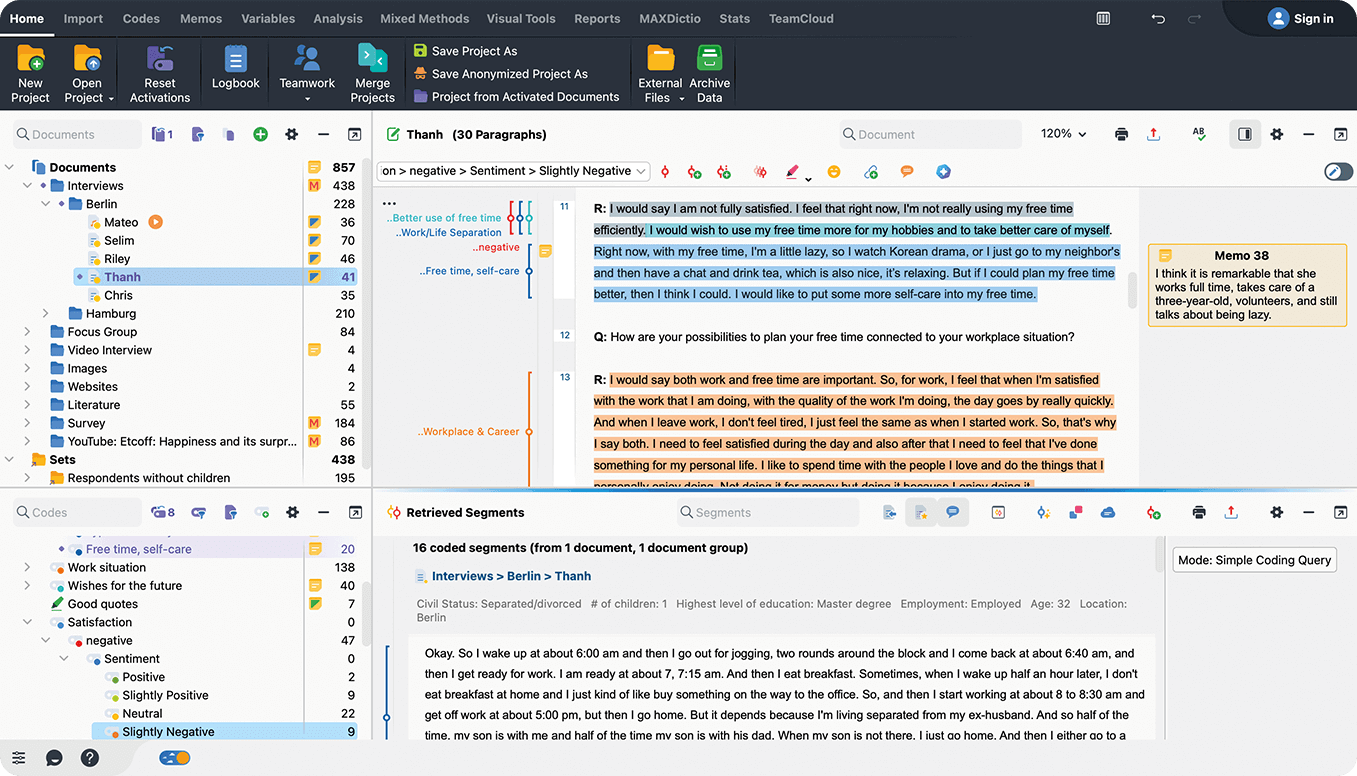
One software, many solutions
Your trial will end automatically after 14 days and will not renew. There is no need for cancelation.
MAXQDA The All-in-one Literature Review Software
MAXQDA is the best choice for a comprehensive literature review. It works with a wide range of data types and offers powerful tools for literature review, such as reference management, qualitative, vocabulary, text analysis tools, and more.
Document viewer
Your analysis.
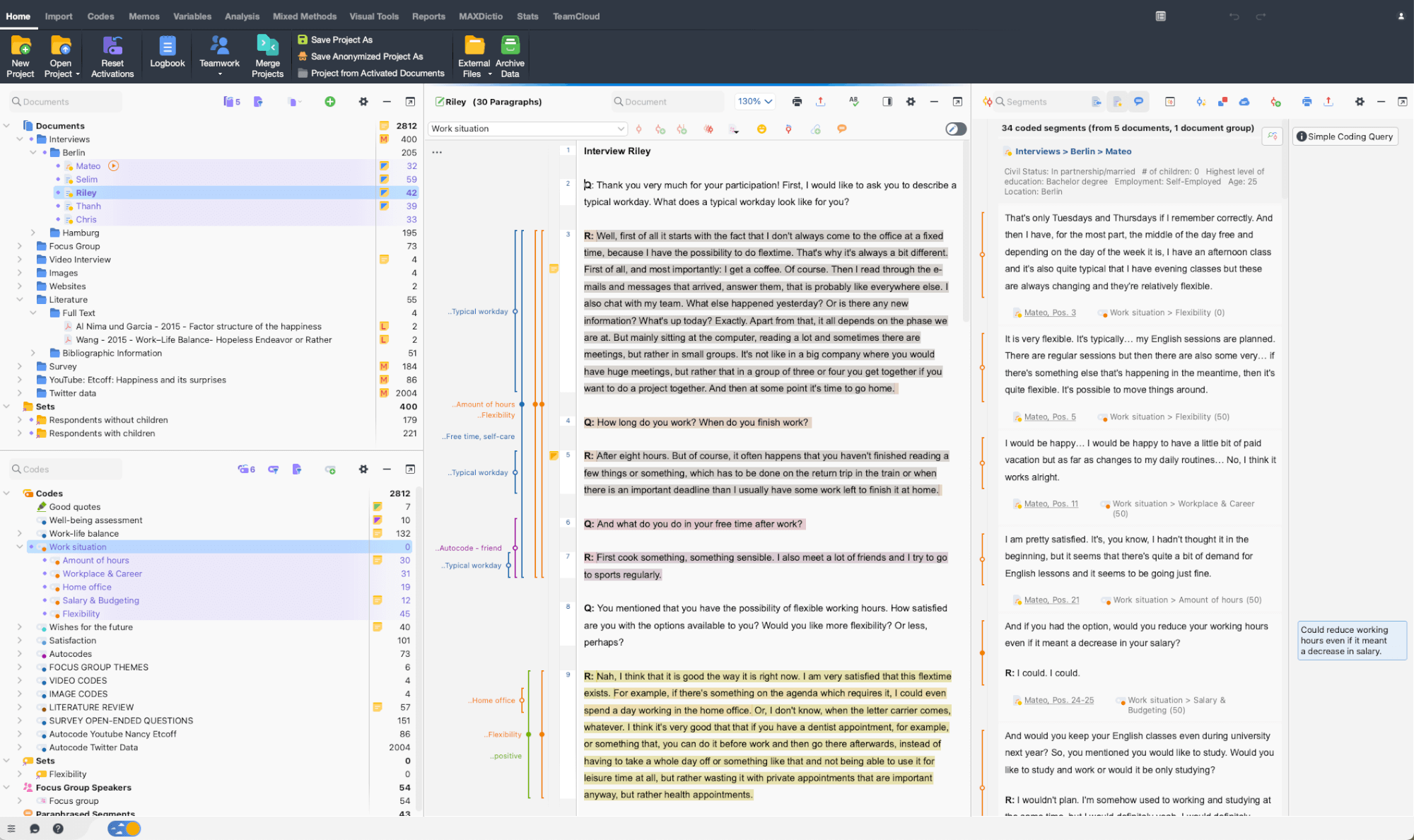
As your all-in-one literature review software, MAXQDA can be used to manage your entire research project. Easily import data from texts, interviews, focus groups, PDFs, web pages, spreadsheets, articles, e-books, and even social media data. Connect the reference management system of your choice with MAXQDA to easily import bibliographic data. Organize your data in groups, link relevant quotes to each other, keep track of your literature summaries, and share and compare work with your team members. Your project file stays flexible and you can expand and refine your category system as you go to suit your research.
Developed by and for researchers – since 1989

Having used several qualitative data analysis software programs, there is no doubt in my mind that MAXQDA has advantages over all the others. In addition to its remarkable analytical features for harnessing data, MAXQDA’s stellar customer service, online tutorials, and global learning community make it a user friendly and top-notch product.
Sally S. Cohen – NYU Rory Meyers College of Nursing
Literature Review is Faster and Smarter with MAXQDA
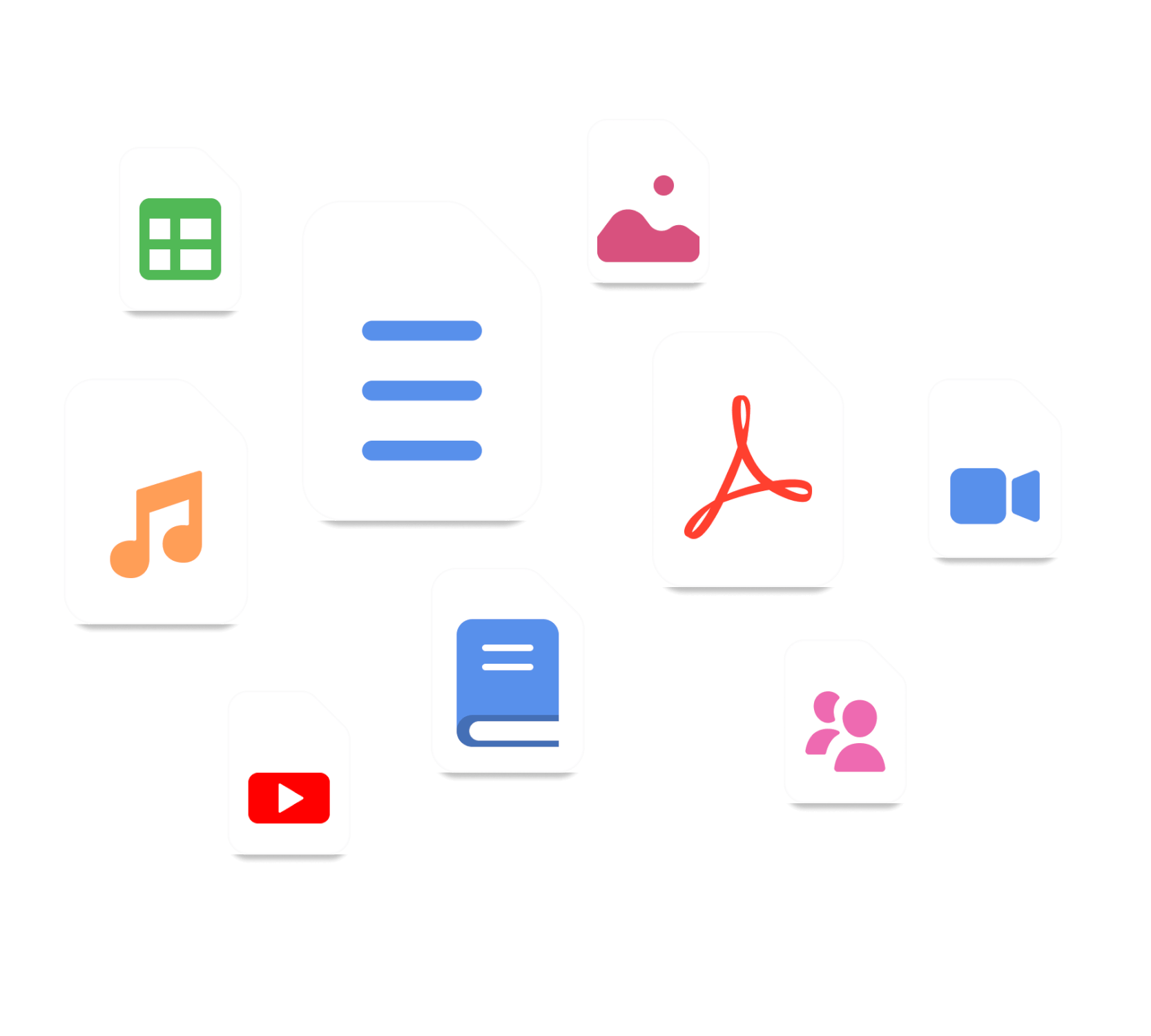
Easily import your literature review data
With a literature review software like MAXQDA, you can easily import bibliographic data from reference management programs for your literature review. MAXQDA can work with all reference management programs that can export their databases in RIS-format which is a standard format for bibliographic information. Like MAXQDA, these reference managers use project files, containing all collected bibliographic information, such as author, title, links to websites, keywords, abstracts, and other information. In addition, you can easily import the corresponding full texts. Upon import, all documents will be automatically pre-coded to facilitate your literature review at a later stage.
Capture your ideas while analyzing your literature
Great ideas will often occur to you while you’re doing your literature review. Using MAXQDA as your literature review software, you can create memos to store your ideas, such as research questions and objectives, or you can use memos for paraphrasing passages into your own words. By attaching memos like post-it notes to text passages, texts, document groups, images, audio/video clips, and of course codes, you can easily retrieve them at a later stage. Particularly useful for literature reviews are free memos written during the course of work from which passages can be copied and inserted into the final text.
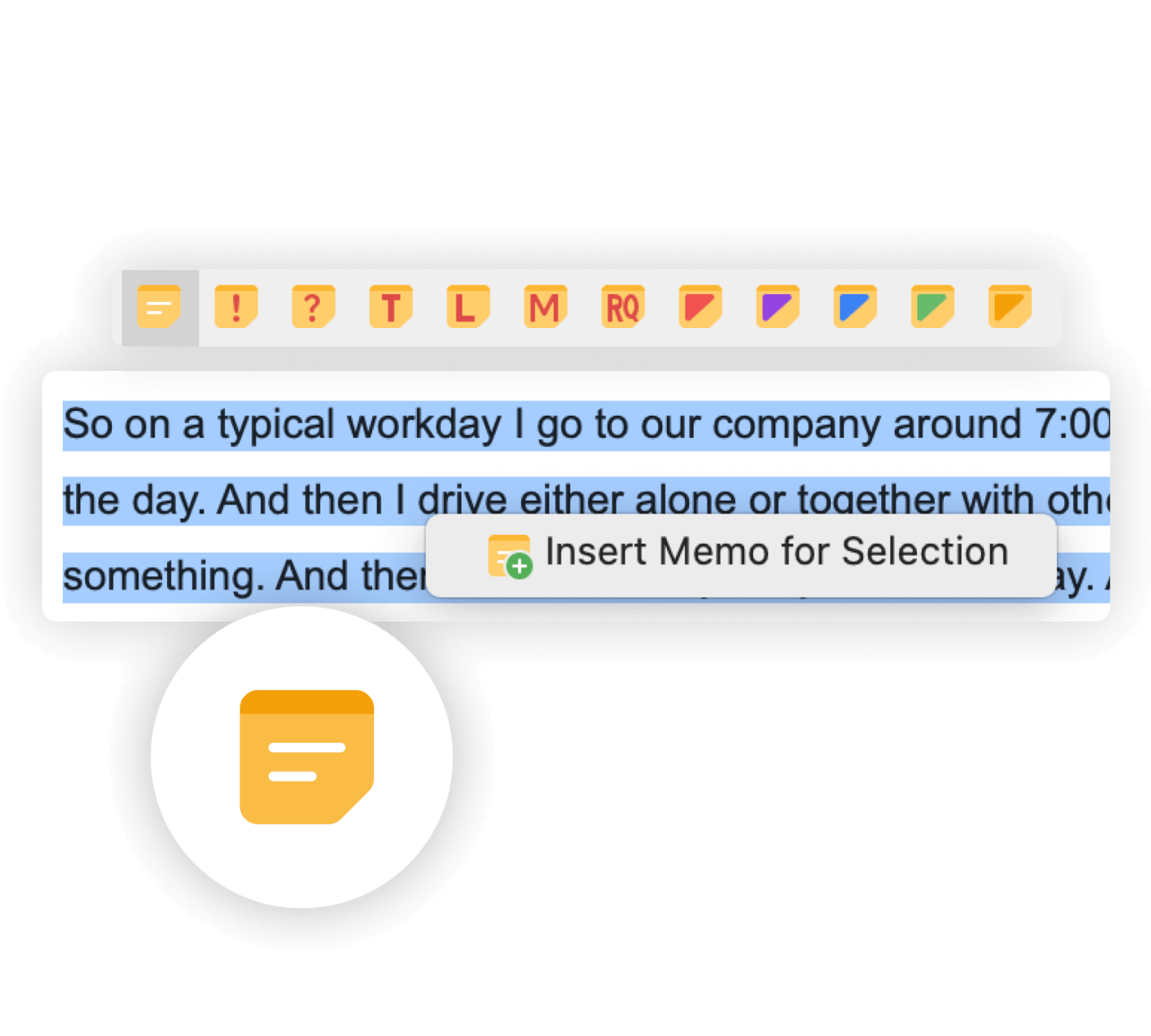
Find concepts important to your generated literature review
When generating a literature review you might need to analyze a large amount of text. Luckily MAXQDA as the #1 literature review software offers Text Search tools that allow you to explore your documents without reading or coding them first. Automatically search for keywords (or dictionaries of keywords), such as important concepts for your literature review, and automatically code them with just a few clicks. Document variables that were automatically created during the import of your bibliographic information can be used for searching and retrieving certain text segments. MAXQDA’s powerful Coding Query allows you to analyze the combination of activated codes in different ways.
Aggregate your literature review
When conducting a literature review you can easily get lost. But with MAXQDA as your literature review software, you will never lose track of the bigger picture. Among other tools, MAXQDA’s overview and summary tables are especially useful for aggregating your literature review results. MAXQDA offers overview tables for almost everything, codes, memos, coded segments, links, and so on. With MAXQDA literature review tools you can create compressed summaries of sources that can be effectively compared and represented, and with just one click you can easily export your overview and summary tables and integrate them into your literature review report.
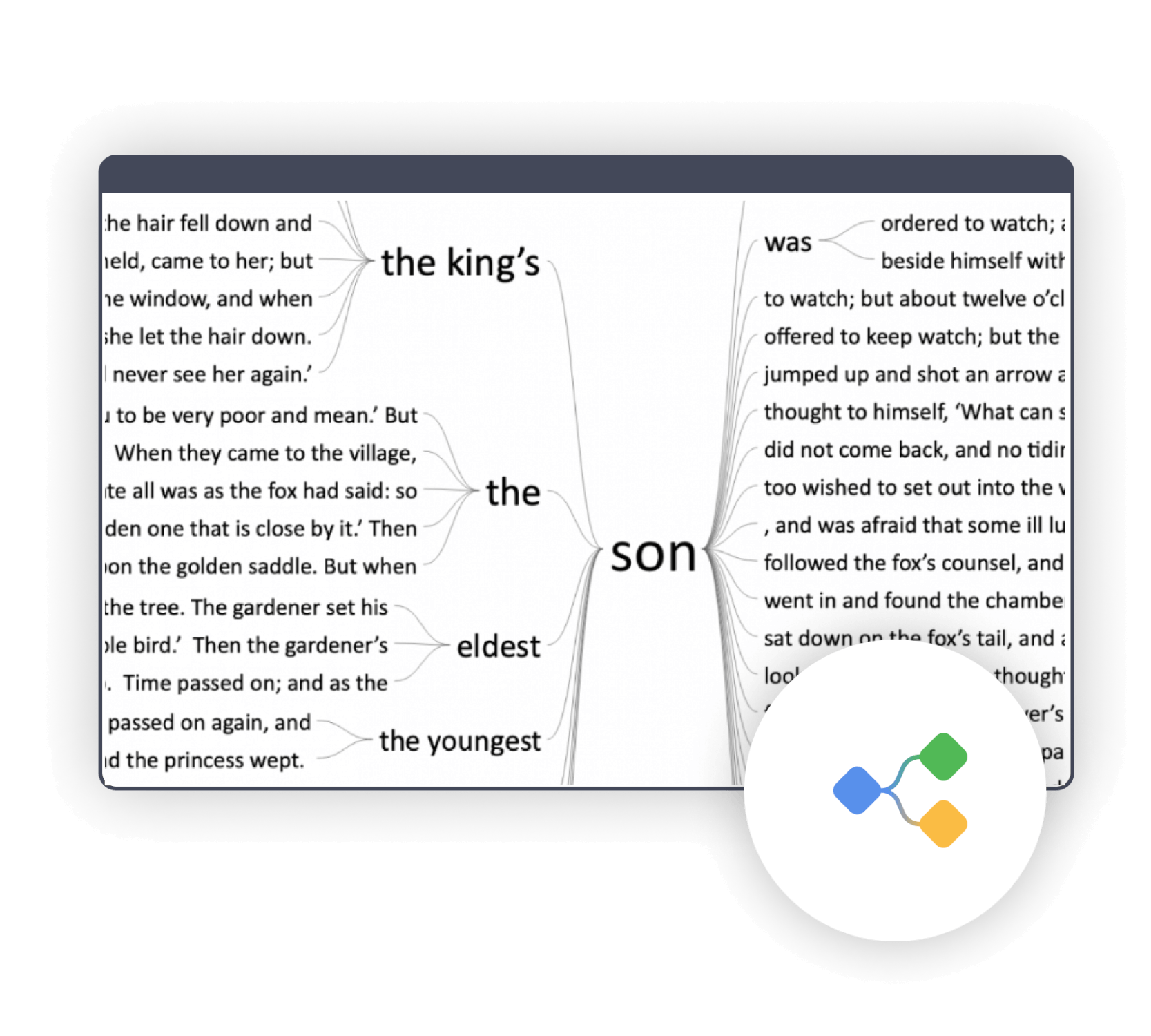
Powerful and easy-to-use literature review tools
Quantitative aspects can also be relevant when conducting a literature review analysis. Using MAXQDA as your literature review software enables you to employ a vast range of procedures for the quantitative evaluation of your material. You can sort sources according to document variables, compare amounts with frequency tables and charts, and much more. Make sure you don’t miss the word frequency tools of MAXQDA’s add-on module for quantitative content analysis. Included are tools for visual text exploration, content analysis, vocabulary analysis, dictionary-based analysis, and more that facilitate the quantitative analysis of terms and their semantic contexts.
Visualize your literature review
As an all-in-one literature review software, MAXQDA offers a variety of visual tools that are tailor-made for qualitative research and literature reviews. Create stunning visualizations to analyze your material. Of course, you can export your visualizations in various formats to enrich your literature review analysis report. Work with word clouds to explore the central themes of a text and key terms that are used, create charts to easily compare the occurrences of concepts and important keywords, or make use of the graphical representation possibilities of MAXMaps, which in particular permit the creation of concept maps. Thanks to the interactive connection between your visualizations with your MAXQDA data, you’ll never lose sight of the big picture.
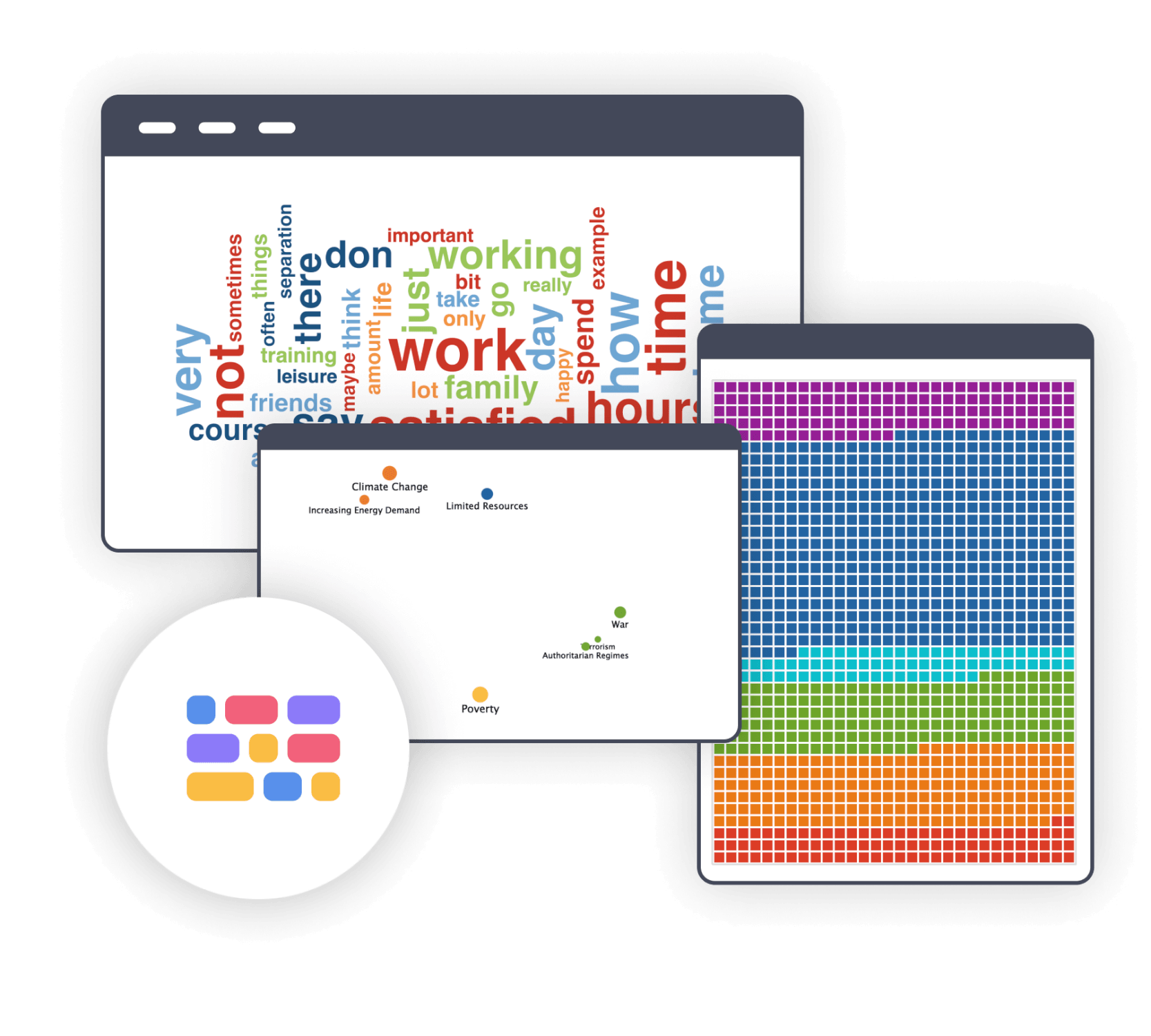
AI Assist: literature review software meets AI
AI Assist – your virtual research assistant – supports your literature review with various tools. AI Assist simplifies your work by automatically analyzing and summarizing elements of your research project and by generating suggestions for subcodes. No matter which AI tool you use – you can customize your results to suit your needs.
Free tutorials and guides on literature review
MAXQDA offers a variety of free learning resources for literature review, making it easy for both beginners and advanced users to learn how to use the software. From free video tutorials and webinars to step-by-step guides and sample projects, these resources provide a wealth of information to help you understand the features and functionality of MAXQDA for literature review. For beginners, the software’s user-friendly interface and comprehensive help center make it easy to get started with your data analysis, while advanced users will appreciate the detailed guides and tutorials that cover more complex features and techniques. Whether you’re just starting out or are an experienced researcher, MAXQDA’s free learning resources will help you get the most out of your literature review.
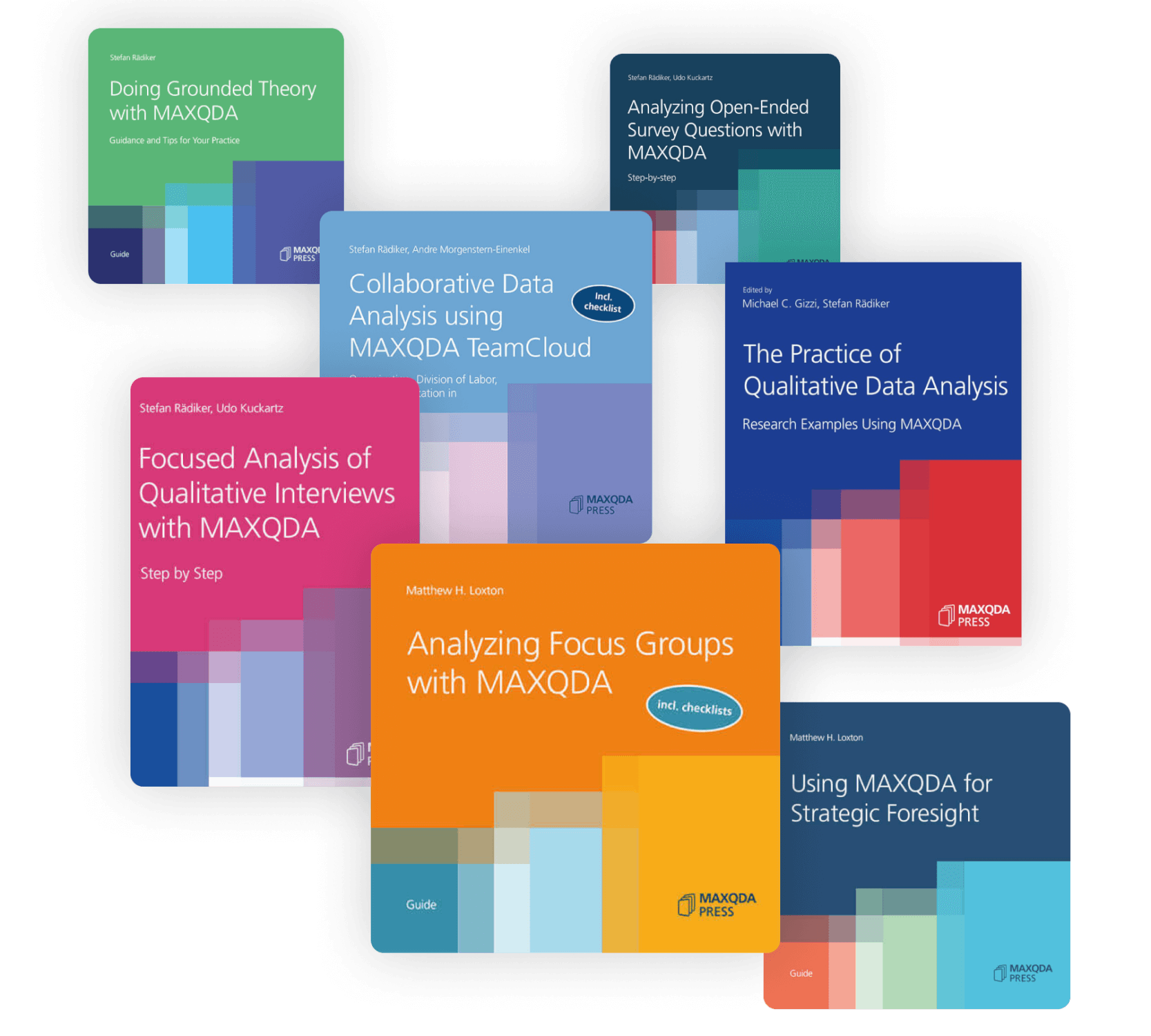
Free MAXQDA Trial for Windows and Mac
Get your maxqda license, compare the features of maxqda and maxqda analytics pro, faq: literature review software.
Literature review software is a tool designed to help researchers efficiently manage and analyze the existing body of literature relevant to their research topic. MAXQDA, a versatile qualitative data analysis tool, can be instrumental in this process.
Literature review software, like MAXQDA, typically includes features such as data import and organization, coding and categorization, advanced search capabilities, data visualization tools, and collaboration features. These features facilitate the systematic review and analysis of relevant literature.
Literature review software, including MAXQDA, can assist in qualitative data interpretation by enabling researchers to organize, code, and categorize relevant literature. This organized data can then be analyzed to identify trends, patterns, and themes, helping researchers draw meaningful insights from the literature they’ve reviewed.
Yes, literature review software like MAXQDA is suitable for researchers of all levels of experience. It offers user-friendly interfaces and extensive support resources, making it accessible to beginners while providing advanced features that cater to the needs of experienced researchers.
Getting started with literature review software, such as MAXQDA, typically involves downloading and installing the software, importing your relevant literature, and exploring the available features. Many software providers offer tutorials and documentation to help users get started quickly.
For students, MAXQDA can be an excellent literature review software choice. Its user-friendly interface, comprehensive feature set, and educational discounts make it a valuable tool for students conducting literature reviews as part of their academic research.
MAXQDA is available for both Windows and Mac users, making it a suitable choice for Mac users looking for literature review software. It offers a consistent and feature-rich experience on Mac operating systems.
When it comes to literature review software, MAXQDA is widely regarded as one of the best choices. Its robust feature set, user-friendly interface, and versatility make it a top pick for researchers conducting literature reviews.
Yes, literature reviews can be conducted without software. However, using literature review software like MAXQDA can significantly streamline and enhance the process by providing tools for efficient data management, analysis, and visualization.

IMAGES
VIDEO
COMMENTS
Creates a comprehensive academic literature review with scholarly resources based on a specific research topic. HyperWrite's AI Literature Review Generator is a revolutionary tool that automates the process of creating a comprehensive literature review. Powered by the most advanced AI models, this tool can search and analyze scholarly articles, books, and other resources to identify key themes ...
How Our AI Literature Review Generator Works. Smart Research Analysis. Our AI scans through thousands of academic papers to find the most relevant sources for your topic. Automatic Citation. Generate properly formatted citations and references automatically as your review is created.
The software will use these instructions to tailor the content appropriately. Track Your Order. Monitor the progress of your literature review by checking the status updates. This lets you know how far along your work is in the creation process. ... Using AI for literature review will help to greatly simplify the process of summarizing and ...
Built from the ground up to support living systematic reviews, Laser AI provides a unique blend of innovation in methods and technology. BOOK A LIVE DEMO. ... Join us at #ISPOREurope as we showcase GRADEpro & Laser AI, offering HEOR professionals efficient literature reviews and guideline development. November 12, 2023. READ NOW.
Discover the top 10 AI tools for literature review in 2024. Explore free and paid options that harness artificial intelligence to help you do literature reviews effortlessly. ... Mendeley is a versatile reference management software, ideal for researchers, academics, and students involved in literature reviews. As one of the best AI tools for ...
The scalability of AI tools is a crucial advantage in the literature review process, allowing them to efficiently handle growing volumes of literature as research expands over time. This scalability ensures that literature reviews remain relevant, manageable, and up-to-date, enabling researchers to stay on top of new developments and maintain ...
A comprehensive literature review is an essential component of any academic or research paper; it provides a detailed summary of the existing knowledge on a topic. Literature review tools are software platforms designed to help researchers organize, collect, and analyze large amounts of information.
DistillerSR automates the management of literature collection, screening, and assessment using AI and intelligent workflows. From a systematic literature review to a rapid review to a living review, DistillerSR makes any project simpler to manage and configure to produce transparent, audit-ready, and compliant results.
Enago Read is an AI assistant that speeds up the literature review process, offering summaries and key insights to save researchers reading time. It boosts productivity with advanced AI technology and the Copilot feature, enabling real-time questions for deeper comprehension of extensive literature.
The #1 literature review software with the best AI integration. MAXQDA streamlines your literature review and reference management with powerful analysis tools, ease of use, and smart AI integration. Explore the possibilities now. Start your free trial. Free MAXQDA trial for Windows and Mac.